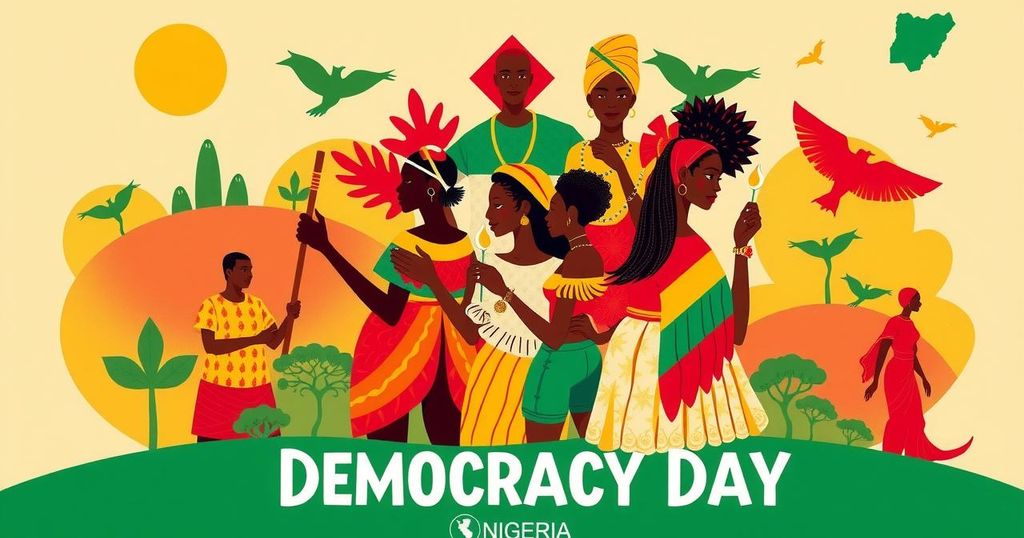June 12: A Day of Historical Symbolism in Nigeria

June 12 is a monumental date in Nigeria’s political history, representing the fight for democracy and justice. It marks the anniversary of the 1993 presidential election seen as the most fair, which was annulled by the military government. The day symbolizes a struggle that demands ongoing commitment to democratic principles, urging reflection on past sacrifices and inspiring action for the future.
June 12 is not just any date on the calendar for Nigeria; it embodies a significant moment steeped in historical symbolism. More than a day commemorated, June 12 has grown to symbolize democratic disobedience and the relentless pursuit of accountability and justice. For many Nigerians, it is a national awakening, marking the struggles for true democratic governance.
The pivotal moment traces back to June 12, 1993, when Nigerians cast their votes in what is widely viewed as the most free and fair presidential election in the country’s history. The results, though later annulled by the military government, indicated that Chief Moshood Kashimawo Olawale Abiola had emerged victorious. Abiola wasn’t merely seen as a candidate from the Yoruba ethnic group; he was presented as a unifying figure with aspirations for a renewed Nigeria.
Sadly, the military’s decision to nullify the election squashed the hopes of millions yearning for a new democratic era. This was more than just a political maneuver; it felt like a betrayal against the people’s will. Following the annulment, Nigeria witnessed a surge in protests and civil activism, with many rallying for justice. MKO Abiola came to be seen as a martyr for democracy, especially after his death in custody in 1998, which only deepened the scars of that dark period.
For many years, June 12 stood as a pillar for pro-democracy advocates, particularly in the South-West, Abiola’s home region. The date served as a bittersweet reminder of what was lost and a continuing call for justice. In 2018, President Muhammadu Buhari’s decision to declare June 12 as Nigeria’s official Democracy Day marked a turning point. This came as a long-awaited acknowledgment that elevated a largely regional memory to the forefront of the national consciousness.
However, it is crucial not to let the importance of June 12 become diluted by mere celebrations and public holidays. The day should act as a vibrant reminder of the core values that democracy should comprise: free and fair elections, upholding civil liberties, respecting the people’s will, and having the courage to question authority.
As Nigeria grapples with lingering challenges such as insecurity, economic difficulties, youth disenfranchisement, and electoral conflicts, it is vital to reflect on the lessons from June 12. Are we honoring those who sacrificed their lives for democratic values? Or are we letting political expediency and a sense of apathy dilute that hard-earned legacy?
June 12 should energize a renewed commitment to embracing democratic principles—not just during elections but throughout governance and civic engagement. This day serves not only as a historical reference but also as a rallying cry for action moving forward.
In remembering June 12, we pay tribute to MKO Abiola, to the countless unnamed heroes of this struggle, but more importantly, we honor ourselves and the future generations awaiting a more just and democratic Nigeria.
In conclusion, June 12 stands as a significant date in Nigeria’s political history, representing both struggle and hope. It is a call for ongoing commitment to democratic values beyond just commemorations. With the memory of those who sacrificed for democracy at the forefront, Nigerians are reminded to actively participate in shaping their future, ensuring that the lessons of the past are not forgotten or overlooked.
Original Source: punchng.com







